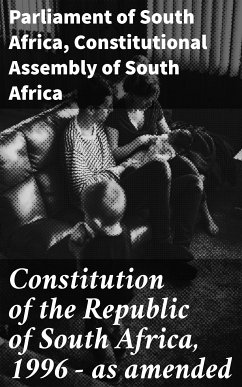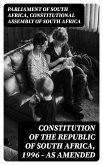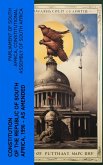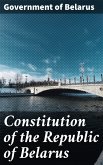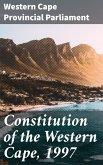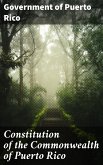The 'Constitution of the Republic of South Africa, 1996 as amended' represents a monumental anthology of legal, historical, and political scholarship, illustrating the transformative journey of a nation through its supreme law. Beyond mere legislative text, this collection embodies a diverse range of narratives, perspectives, and stylistic expressions that contributed to the reimagining of South Africa's social fabric. Noteworthy for its inclusive approach to constitution-making, the anthology stands out for the breadth of consultation and participatory democracy it symbolizes, making it a unique piece in the landscape of constitutional law. The contributors, primarily members of the Parliament of South Africa and the Constitutional Assembly, collectively symbolize the culmination of years of struggle, negotiation, and aspiration towards a democratic ethos. The anthology aligns with significant historical and cultural movements, encapsulating the post-apartheid transition towards democracy, and showcases the collaborative effort to balance diverse interests in a deeply divided society. This rich background offers readers an unmatched insight into the complexities and challenges of constitution-making in a multicultural landscape. This anthology is recommended for anyone interested in constitutional law, democratic governance, and political history. It presents an exceptional opportunity to explore the intricate process of forming a foundational legal document that seeks to unite a previously fractured community. Readers will gain a deeper understanding of the nuances of governance, the importance of inclusivity and consensus, and the ongoing dialogue between differing viewpoints that is essential for a healthy democracy. Dive into this collection to witness the power of collective aspiration towards a common goal of justice and equality.
